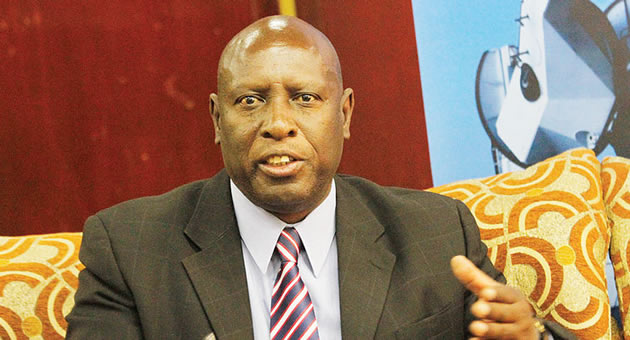Captains of industry seek price cut incentives

Business Editor
BUSINESSES have expressed readiness to slash prices for goods and services in line with the Reserve Bank of Zimbabwe (RBZ)’s advice to enhance domestic industry competitiveness but say the move requires cushioning from negative cost drivers.The RBZ governor John Mangudya in his recent monetary policy statement made a plea for service and commodity price cuts to pave way for economy growth.
He said prevailing economic conditions do not allow for salary increases arguing that price reduction instead, would provide the required impetus to boost industrial production, curb company closures and ease pressure on employers over pay rise.
Busisa Moyo, who heads the Confederation of Zimbabwe Industries (CZI) Matabeleland Chamber, said businesses were ready to slash prices but quickly pointed out that the success of the proposal should be complemented by incentives from the government to cushion firms from the harsh realities of production costs.
“We’ve reduced cooking oil prices steadily by about 50 percent from $6 in 2009 to the current $3.15, which is at par with imports,” said Moyo who is the chief executive officer of the giant cooking oil firm, United Refineries Limited (URL) in Bulawayo.
“This trend is likely to continue to below the $3 mark for oils. Soap is now below $1 to the trade.”
A handful of companies such as Delta Beverages, Innscor and Schweppes have started reducing prices — buttressing the recent introduction of bond coins, which have proved handy in solving the problem of change.
Some bakery firms and supermarkets in Bulawayo for instance, now produce a loaf of bread sold for between $0.60 and $0.90 although big players such as Lobels and Bakers Inn still sell a loaf for $1.
In the transport sector, luxury coach operators recently announced the fare for the Bulawayo-Harare trip had been slashed to $20 from the traditional $30 to $40.
Some hotels have also announced reduction in hotel service charges in a bid to boost business.
“This is all before factoring into account incentives that (South African manufacturers for example) enjoy from their government when they export to Zimbabwe (20-25 percent credit), the export earnings hedge that Zimbabwe has become for South African businesses who’re looking for US dollar and the weakening rand, which makes South African imports cheaper in US dollar,” added Moyo.
He also said sustaining lower prices of commodities should be complemented by improved raw material supplies from farmers at competitive prices.
“We need farmers to also bring the prices of soya bean and ginners to bring cotton seed prices down to import parity while duties and VAT on raw material imports should be scrapped,” Moyo added.
“The duty on diesel also should be done away with to allow for competitiveness just as our fellow manufacturers in South Africa and Zambia who’ve seen lower prices on fuels.
“Salaries should be productivity based at, say, low fixed base of $50 + say x cents for tonnage produced or processed, and the working week should be lengthened to 50 hours to avoid excessive overtime.”
Moyo said utilities such as rentals and rates should be brought in line with the regional neighbours or lower to spur economic activity and reduce barriers to entrepreneurship.
He said despite the challenges, companies remain focused and said his firm, URL for instance, would continue with its plans to strengthen the company for the future through competitive value products for the market, exports and regional expansion.
Moyo, however, commended the tightening of import regulations by the government last year, which he said had started bearing fruit.
“Yes, they assisted the cooking oil industry revival in Zimbabwe from 2,000mt being supplied by local producers three years ago to 6,000mt being supplied now,” he said.









Comments